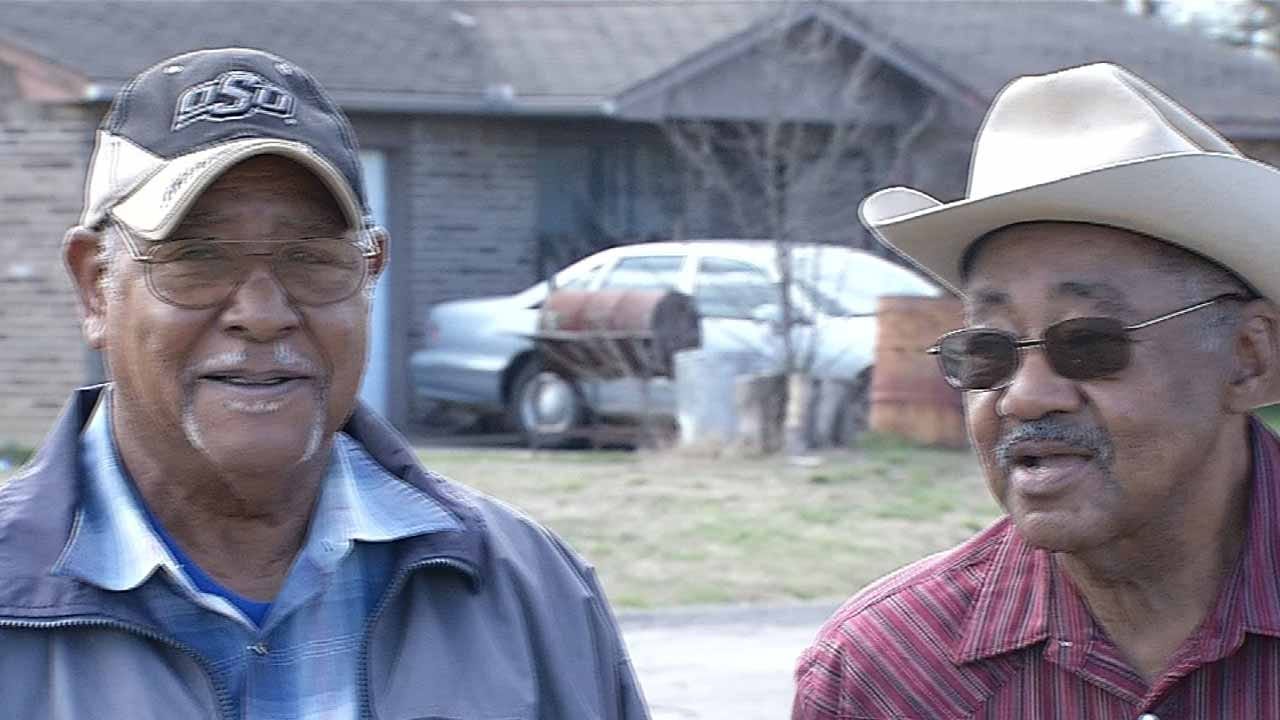First Black Football Players At Booker T. Recall Joining Team
<p>Joe Harrison and Sylvester Hollis – two men who helped pave a trail for blacks to play football on all-white teams – tell their story.</p>Monday, February 27th 2017, 10:32 pm
In the mid-1950s, schools across Oklahoma started to field integrated football teams.
Now, Joe Harrison and Sylvester Hollis – two men who helped pave a trail for blacks to play football on all-white teams – tell their story.
In 1954, the Supreme Court's Brown vs. the Board of Education decision overturned segregation, but it took until 1966 for the high court’s order to reach Haskell.
Ten year’s previous, football coach A.B. Shockley had other ideas.
"The coach’s wife, she was a nurse at the time, I said 'Why did they pick me to play?' She said they wanted to win some games," Harrison said.
Hollis said, "We didn't know nothing about football, all I know is we were going to try to play."
Harrison and Hollis attended Booker T. Washington High School, Haskell’s all black school. There was a basketball team but no football team.
Shockley watched them play basketball and decided he'd teach them football. Harrison was enticed, and Hollis joined.
They were the first black players to play for Haskell and made an immediate impact.
"Didn't know if I was good or not, I could run a 9.7 in the 100 with all uniform on," Harrison said.
Haskell was good, in 1956 they defeated Union and Jenks.
During a time of racial unrest, the team tried to keep its focus, but road games were especially tough.
Hollis said, "We couldn't go to the cafés. We could go, but we had to be at the rear."
"I remember when we was playing at Union and an assistant coach got hit by a rock and he said that rock was intended for me," Harrison said.
Both men did their talking on the field.
Harrison, a fullback, got an offer to play at OSU under Cliff Speegle, and join Chester Pittman - the first black man to play for the Cowboys. But he decided farming was his future and graduated from Northeastern State.
What was once Booker T. Washington High School is not a vacant lot.
Around the city, there are a few things you can find of the legacy of Joe and Sylvester.
For one, there's a sign that says “Former home of Booker T. Washington.” Then, there's a street sign and a little brick that can tell you about the memory of Joe and Sylvester.
Nearby is Franklin Street, named after the basketball coach at Booker T.; and right in front of the Franklin Event Center and A.B. Shockley Stadium is a brick in Harrison's honor.
But, unfortunately, there are no photographs, no trophies, just a legacy of knowing they paved the way during a time when integrated sports teams were taking the first tiny steps of a nation trying to live up to its highest ideals.
Hollis said, "It made me feel good that we were amongst the rest of them, so that made me feel like we accomplished something.”
"It had to be a first time for everything, and I talked to be a leader for young blacks," said Harrison.
More Like This
February 27th, 2017
September 29th, 2024
September 17th, 2024
Top Headlines
December 22nd, 2024
December 22nd, 2024
December 21st, 2024











